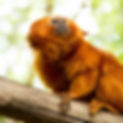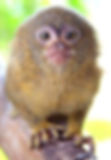


Captive Breeding - A Hedge Against Extinction
As space for nature disappears, the need for captive management strategies targeting critically endangered species grows. RSCF's 30-acre facility in South Florida operates as a living laboratory, allowing the development of reproductive, husbandry, management and long-term conservation programs linking captive breeding with in situ conservation efforts. These techniques ensure species on the brink of extinction have a chance to recover, while at the same time we continue our efforts to protect and preserve their habitats in the wild.
Current on-site species management programs include: Red-browed Amazon Parrot (Amazona rhodocorytha); Vinaceous Amazon Parrot (Amazona vinacea); Mountain Bongo Antelope (Tragelaphus eurycerus isaaci); Golden-lion Tamarin (Leontopithecus rosalia); Golden-headed Lion Tamarin (Leontopithecus chrysomelas); Pygmy Marmoset (Cebuella pygmaea), Cayman Brac Iguana (Cyclura nubila caymanensis).
2019 Facilities Expansion
RSCF has annexed a five-acre property adjacent to the original Conservatory parcel which includes substantial physical infrastructure to enhance Conservatory operations. Currently, the Rare Species Conservatory Foundation (RSCF) owns three contiguous parcels which altogether comprise the Conservatory and represent RSCF's wildlife and conservation center and the hub for international scientific conservation research.
The new 5-acre addition enhances RSCF's wildlife conservation activities as follows:
-
Expands propagation and management programs for endangered animals and plants
-
Enhances facilities for large-animal holding (barn) and small-animal treatment (Animal Recover Center ARC)
-
Provides a central, main structure and housing for research scientists, visiting scholars, students, and staff
-
Expands outreach and educational facilities for the students, interns, and the public
-
Provides central life-support systems and lab space (incubators, brooders, food and specimen storage)
-
Provides a central meeting area for scientific symposia, public presentations, and meetings
-
Enhances program development with partnering universities (Florida International University/Tropical Conservation Institute) and other institutions (American Museum of Natural History; Zoo Miami, Tampa Zoo, international NGOs)
-
Expands botanical culture activities and facilities
-
Expands laboratory space, diagnostics, and veterinary support
-
Expands office, managerial and staff-support space
-
Expands equipment storage (maintenance and scientific)
-
Expands special diet preparation and storage
As a 30-acre facility, the Conservatory represents international headquarters for wildlife conservation, focusing on global biodiversity preservation. RSCF's interdisciplinary programs integrate applied field and clinical research on endangered species, propagation and management of critical flagship species for repatriation and reintroduction, developing husbandry protocols for critical taxa, and implementing protected-area policies and strategies for long-term ecosystem conservation. RSCF also collaborates with scientific and governing authorities for wildlife in conservation hotspot zones, primarily in the tropics and neo-tropics, to develop tangible conservation solutions for imperiled species and habitats.
RSCF's South Florida facility serves as a captive-propagation and research complex for endangered species, as it also provides a hub for international exchange and outreach to students, interns, collegial scientists and the general public. The expanded facilities significantly enhance RSCF's conservation mission both locally and internationally while facilitating existing and future programs to protect and restore the world's highest priority wildlife and natural areas.








Animal Recovery Center (ARC)
At the heart of our conservation work is the Animal Recovery Center (ARC), a vital hub for the treatment, care, and rehabilitation of the rare and endangered species in our care. The ARC provides a safe, dedicated space where animals receive the medical attention they need and where our team works around the clock to give each individual the best chance at survival.
More than just a clinic, the ARC also serves as a training ground for students, researchers and staff, offering hands-on education in wildlife health, emergency care, and the principles of conservation medicine. Through this facility, we’re building the next generation of wildlife professionals and empowering them with the skills needed to protect species on the brink.
In 2023, the ARC proved indispensable during one of our most urgent conservation responses: the rescue of 29 confiscated endangered parrot eggs and chicks. Without the ARC, this high-stakes mission would not have been possible. Inside the facility, we were able to carefully incubate and hatch every egg, then provide round-the-clock care to hand-rear each fragile chick. It was a monumental effort and a powerful reminder of the ARC’s role as both a sanctuary and a lifeline.
The ARC is where hope is hatched, healing happens, and futures are made possible.
RSCF thanks Dr. Al Sears for his unwavering support of global wildlife conservation. Dr. Sears was instrumental in the creation of RSCF's Animal Recovery Center (ARC). Believing a healthy planet directly impacts the health of the human population, Dr. Sears has made it possible for RSCF to train the next generation of wildlife medicine practitioners.
